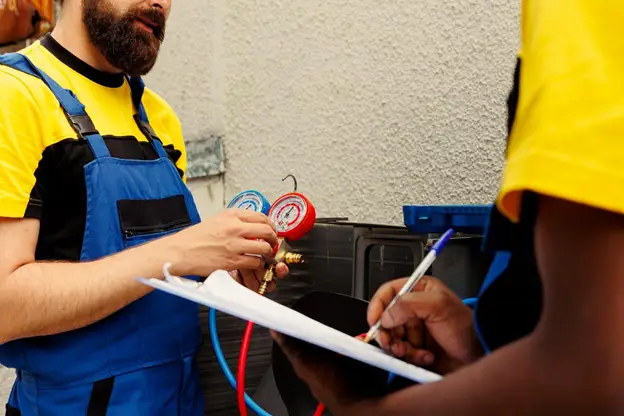For new construction roofing in Charlotte, you need asphalt shingles or metal roofing that can withstand high winds, proper ventilation for humidity control, a licensed local contractor familiar with NC building codes, and a substantial budget depending on materials and home size. The key is choosing weather-resistant materials, ensuring code-compliant installation, and planning for Charlotte’s humid subtropical climate.
Building a new home in Charlotte, North Carolina, represents one of life’s most significant investments. Among the critical decisions you’ll face during construction, selecting the right roofing system stands as perhaps the most important choice for protecting your investment and ensuring long-term comfort. Charlotte’s unique climate conditions, local building codes, and architectural preferences create specific considerations that every homeowner should understand before breaking ground.
Understanding Charlotte’s Climate Challenges
Charlotte’s humid subtropical climate presents unique challenges for roofing systems that homeowners must consider during the planning phase. The region experiences hot, humid summers with high temperatures, while winters remain relatively mild with occasional freezing temperatures. This climate pattern creates specific stress factors that impact roofing material selection and installation requirements.
The area receives substantial rainfall annually, with precipitation distributed fairly evenly throughout the year. However, summer months often bring intense thunderstorms that can produce damaging winds, hail, and heavy downpours. These weather patterns require roofing systems capable of withstanding sudden temperature fluctuations, moisture infiltration, and severe weather events.
Key climate challenges that affect roofing decisions include:
- High humidity levels: Consistently elevated moisture in the air promotes mold growth and wood rot
- Temperature extremes: Rapid changes between hot and cold create expansion and contraction stress
- Severe thunderstorms: Intense weather events bring damaging winds and hail risks
- Heavy rainfall: Substantial precipitation requires superior water management systems
- UV exposure: Intense summer sun accelerates material degradation over time
Humidity levels in Charlotte remain consistently high throughout much of the year, creating conditions that promote mold growth, wood rot, and other moisture-related issues if proper ventilation and moisture barriers aren’t installed correctly. Professional charlotte roofing contractors understand these local conditions and can recommend appropriate materials and installation techniques to combat these challenges effectively.
Essential Roofing Materials for Charlotte Homes
Selecting appropriate roofing materials for Charlotte’s climate requires careful consideration of durability, energy efficiency, and aesthetic appeal. Asphalt shingles remain the most popular choice among Charlotte homeowners due to their versatility, affordability, and proven performance in the local climate. Architectural shingles offer enhanced durability and visual appeal compared to traditional three-tab shingles, making them an excellent investment for new construction projects.
Metal roofing has gained significant popularity in recent years, particularly among homeowners seeking energy-efficient solutions. When installed by experienced roofing charlotte nc professionals, steel, aluminum, and copper roofing systems provide exceptional longevity, often lasting decades with proper maintenance. Metal roofs reflect solar heat effectively, reducing cooling costs during Charlotte’s hot summers while providing superior protection against severe weather events.
Tile roofing, including clay and concrete options, offers exceptional durability and distinctive aesthetic appeal that complements many architectural styles popular in Charlotte. While the initial investment is higher than other materials, tile roofing systems can last many decades with proper installation and maintenance, making them cost-effective over the long term.
Slate roofing represents the premium option for homeowners seeking unmatched durability and timeless elegance. Natural slate can last for generations with proper care, though the material requires specialized installation expertise and structural considerations due to its weight.
Building Code Requirements and Permit Considerations
Charlotte follows North Carolina state building codes with additional local amendments that address specific regional concerns. New construction roofing projects must comply with current International Residential Code (IRC) standards, which specify minimum requirements for materials, installation methods, and structural support systems.
Wind resistance requirements are particularly important in Charlotte, where the building code mandates roofing systems capable of withstanding high winds. This requirement influences material selection, installation techniques, and fastening specifications that professional roofing charlotte nc contractors must follow during installation.
Permit requirements for new construction roofing vary depending on the project scope and local jurisdiction. Most new home construction requires comprehensive building permits that include roofing specifications, though some roof replacements or repairs may require separate roofing permits. Working with experienced contractors ensures all necessary permits are obtained and inspections are scheduled appropriately.
Fire resistance ratings also play a crucial role in material selection and code compliance. Charlotte’s building codes require high fire-resistant roofing materials in most residential applications, which influences the selection of shingles, underlayment, and installation methods.
Ventilation Systems and Energy Efficiency
Proper attic ventilation is absolutely critical for Charlotte homes due to the region’s high humidity levels and extreme summer temperatures. The best roofing company charlotte will emphasize that inadequate ventilation can lead to moisture accumulation, reduced energy efficiency, and premature roofing system failure. Professional installation includes balanced intake and exhaust ventilation systems that promote continuous airflow through the attic space.
Ridge vents combined with soffit vents create the most effective ventilation system for most Charlotte homes. This combination allows cool air to enter through the soffits while warm, humid air exits through the ridge vents, creating natural convection that helps regulate attic temperatures and moisture levels.
Energy efficiency considerations extend beyond ventilation to include reflective roofing materials, proper insulation installation, and radiant barrier systems. Light-colored roofing materials reflect more solar heat than dark colors, reducing cooling costs during summer months. However, darker colors may provide slight heating benefits during Charlotte’s mild winters.
Insulation installation must meet or exceed current energy code requirements, with proper air sealing to prevent conditioned air leakage into the attic space. The combination of effective ventilation, adequate insulation, and appropriate roofing materials creates a system that maintains comfortable indoor temperatures while minimizing energy consumption.
Selecting the Right Roofing Contractor
Choosing the best roofing company charlotte requires careful evaluation of experience, licensing, insurance, and local reputation. New construction roofing demands specialized expertise that differs significantly from repair or replacement work, making contractor selection particularly important for homeowners building new homes.
Licensed contractors must carry appropriate liability insurance and workers’ compensation coverage to protect homeowners from potential claims or damages during construction. Verify licensing status through the North Carolina State Board of Examiners of Plumbing, Heating, and Fire Sprinkler Contractors, which oversees roofing contractor licensing in the state.
Local experience matters significantly when selecting roofing contractors, as familiarity with Charlotte’s climate, building codes, and permit processes directly impacts project success. Contractors with established local relationships often provide better service, faster permit processing, and more reliable warranty support than companies from outside the area.
References from recent customers provide valuable insights into contractor performance, communication quality, and problem-solving abilities. Request references from projects completed within the past several years, and take time to contact previous customers about their experiences with the contractor’s work quality, timeliness, and professionalism.
Essential questions to ask potential contractors include:
- Licensing and insurance verification: Confirm current licenses and adequate coverage levels
- Local project experience: Ask about recent Charlotte-area installations and familiarity with local codes
Material supplier relationships: Inquire about preferred suppliers and material warranty support - Timeline commitments: Discuss realistic project schedules and weather contingency plans
- Communication protocols: Establish expectations for progress updates and issue resolution
- Warranty terms: Review coverage periods and what situations void warranty protection
Timeline and Project Management Considerations
New construction roofing timelines depend on multiple factors including weather conditions, material availability, home size, and roofing complexity. Typical installation timeframes range from several days to over a week for standard residential projects, though complex designs or challenging weather conditions may extend this timeline.
- Pre-installation preparation: Site preparation, material delivery, and safety setup typically require one full day
- Decking installation: Roof decking installation and inspection usually takes one to several days depending on home size
- Underlayment and material installation: Primary roofing material installation typically requires several days for standard homes
- Final inspection and cleanup: Quality control inspection, cleanup, and final walkthrough complete the project
- Weather contingency planning: Additional time should be allocated for potential weather delays during Charlotte’s rainy seasons
Coordination with other construction trades is essential for maintaining overall project schedules. Roofing installation typically occurs after framing completion but before siding installation, requiring careful scheduling to avoid conflicts with other contractors.
Material ordering and delivery scheduling require advance planning, particularly during peak construction seasons when popular materials may experience longer lead times. Professional charlotte roofing contractors manage these logistics to prevent costly delays that could impact overall construction timelines.
Quality Control and Inspection Processes
Professional roofing installation includes multiple quality control checkpoints that ensure proper installation and long-term performance. Initial inspections focus on structural adequacy, ensuring roof framing meets design specifications and local building code requirements before roofing materials are installed.
Underlayment installation requires careful attention to overlap patterns, fastening specifications, and integration with flashing systems around penetrations and roof edges. Quality contractors perform self-inspections at each stage to identify and correct potential issues before they become costly problems.
Final inspections verify compliance with manufacturer specifications, building code requirements, and design plans. These inspections cover material installation, flashing details, ventilation system function, and overall workmanship quality. Municipal building inspectors typically perform final inspections before issuing occupancy permits.
Documentation of installation procedures, material specifications, and warranty information provides homeowners with valuable records for future maintenance and potential warranty claims. Professional contractors provide comprehensive documentation packages that include photos, material certificates, and warranty registration information.
Maintenance and Long-Term Care
Establishing a maintenance routine from the beginning extends roofing system lifespan and protects your investment in quality materials and professional installation. Charlotte’s climate requires particular attention to gutter cleaning, debris removal, and ventilation system maintenance to prevent moisture-related problems.
Annual inspections should include checking for loose or damaged shingles, examining flashing around chimneys and vents, and ensuring gutters remain securely attached and properly sloped. Professional inspections every few years help identify potential issues before they become expensive repairs.
Preventive maintenance tasks include keeping gutters clean and free-flowing, trimming overhanging tree branches that could damage roofing materials, and ensuring attic ventilation systems remain unobstructed. These simple maintenance steps significantly extend roofing system lifespan while maintaining energy efficiency.
Regular maintenance checklist for Charlotte homeowners:
- Spring inspection: Check for winter damage and prepare for storm season
- Gutter maintenance: Clean debris and verify proper drainage flow
- Tree management: Trim branches that overhang the roof surface
- Ventilation check: Ensure soffit and ridge vents remain unblocked
- Attic inspection: Look for signs of moisture, pests, or insulation issues
- Professional evaluation: Schedule contractor inspections every few years
Warranty protection depends on following manufacturer maintenance requirements and using approved repair materials and methods. Keep detailed records of all maintenance activities, inspections, and repairs to protect warranty coverage and demonstrate proper care if claims become necessary.
Conclusion
Successful new construction roofing in Charlotte requires careful attention to material selection, contractor choice, and installation quality. The region’s unique climate challenges demand professional expertise and proven materials that can withstand hot, humid summers and occasional severe weather events. By understanding local building requirements, evaluating contractor qualifications thoroughly, and planning for proper maintenance, homeowners can ensure their roofing investment provides decades of reliable protection and energy efficiency.
Working with experienced local contractors who understand Charlotte’s specific requirements ensures your new home receives a roofing system designed to perform optimally in the local climate while meeting all applicable building codes and manufacturer specifications. The investment in quality materials and professional installation pays dividends through reduced maintenance costs, improved energy efficiency, and enhanced home value for years to come.



